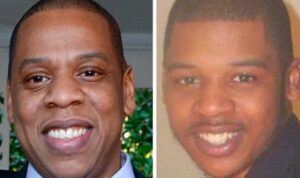Kilmar Ábrego García, a Maryland resident recently deported to El Salvador, has alleged severe mistreatment and torture during his detention. Legal documents reveal accounts of beatings and extensive abuse in the infamous CECOT prison, raising serious human rights concerns.
Allegations of Torture Emerge from Maryland Man's Detention in El Salvador

Allegations of Torture Emerge from Maryland Man's Detention in El Salvador
Kilmar Ábrego García claims he faced severe abuse in one of El Salvador's infamous prisons after being deported, with new court documents detailing his traumatic experiences.
Kilmar Ábrego García, a Maryland man, is alleging severe torture and abuse during his detention in El Salvador's CECOT prison, following a mistaken deportation. Newly filed court documents by his lawyers detail harrowing experiences including visible injuries from beatings within just one day of arriving at the facility. The 29-year-old, who faces human trafficking charges in the U.S. and has pleaded not guilty, asserts that assaults from prison guards were part of his ordeal.
Mr. Ábrego García, who had been previously labeled as a member of the violent MS-13 gang—claims these accusations are false, a sentiment echoed by his family. The court documents reveal that upon his arrival at the Terrorism Confinement Centre, he and at least 20 other deported individuals were routinely subjected to violence. They were confined in overcrowded, windowless cells, forced to sit on bare metal bunks and denied basic sanitation, with bright lights illuminating the area around the clock.
The allegations escalate to appalling treatment, with Mr. Ábrego García stating that inmates were coerced into kneeling for hours, facing punishment from guards if they were unable to comply due to exhaustion. Reports also indicate he received threats of confinement with gang members, a tactic that heightened his fear of potential violence.
President Nayib Bukele of El Salvador has previously asserted that the country’s prisons maintain high standards, free from violence and unsanitary conditions—claims that contrast sharply with Mr. Ábrego García's experiences. Following his eventual return to the U.S. in June to face charges, the Trump administration's lawyers have sought to dismiss the lawsuit his wife filed, asserting the events have shifted since his return to America.
Initially entering the U.S. unlawfully in 2011, Mr. Ábrego García was granted deportation protection in 2019 due to potential gang-related risks in El Salvador. However, he was later deported in March 2025 under controversial circumstances identified by Trump administration officials as an error. While a judge mandated his return to the U.S., initial reticence from the White House complicated his situation.
After finally returning, Attorney General Pam Bondi proclaimed the case exemplifies "American justice." Nevertheless, Mr. Ábrego García continues to assert his innocence regarding the trafficking allegations, which he and his legal team have labeled as absurd. Although a ruling in late June deemed him eligible for release, concerns around potential re-deportation have kept him in custody.






















